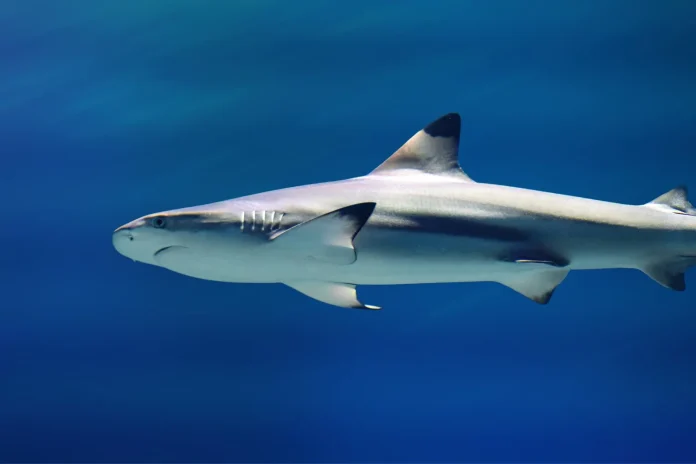Shark Bites on Humans May Sometimes Be Self-Defense, Scientists Say
Sharks may not be as responsible for the rare human bites as we’ve long assumed. In a new study published today, researchers argue that at least some shark bites should be seen as acts of self-defense—not predation.
Led by French marine biologists and published in Frontiers in Conservation Science, the study analyzed shark bite data from around the world. The team estimates that roughly 5% of shark bites on humans are not hunting attempts but rather defensive reactions. These findings could help refine global shark bite prevention strategies. “This study shows that sharks have as much right to defend themselves as any other animal or human when their survival is threatened,” said lead researcher Eric Clua, a shark expert at PSL University.
Clua was inspired to explore the topic based on experiences during his fieldwork in French Polynesia. He frequently heard about sharks caught in fish pens, where fishermen sometimes tried to kill them. In several of these cases, the sharks bit back only after being attacked. He also came across stories of underwater spearfishers being bitten—often only when sharks were trying to protect the prey they had already claimed.
“Looking deeper into these incidents, I saw a pattern,” Clua told Gizmodo. “It became clear that some of these bites weren’t predatory—they were defensive. That prompted us to model shark bites through a self-defense lens, shifting the responsibility in these cases from the shark to the human.”
The researchers began by studying 74 shark bites recorded in French Polynesia between 2009 and 2023, all of which included at least some clues about what might have triggered the attack. Four of those bites—about 5%—appeared to be defensive.
They then expanded their analysis to the Global Shark Attack File, which contains nearly 7,000 documented shark bites since 1863. Focusing on bites categorized as “provoked”—incidents where humans were in close proximity to sharks—they found a similar pattern: around 5% of the 322 reviewed cases likely fit the criteria for self-defense.
These criteria included bites that followed a human action perceived as threatening or invasive, bites that were repeated but resulted in non-lethal injuries, or unusually forceful bites in cases where a shark was distressed—like when a person attempted to return a stranded shark to the water. That kind of overreaction, Clua said, could simply be desperation.
“Our results suggest that even well-intentioned human actions, like helping a shark in trouble, can be misinterpreted as threats and lead to defensive bites,” Clua explained. He emphasized that such insights could help reduce shark bite incidents by encouraging people to avoid interacting with sharks altogether—even if the animals appear harmless or in distress.
Among the safety tips: don’t approach sharks, even if they seem passive; avoid swimming alone in areas known to be shark habitats; and if faced with a predatory shark, don’t stay still—fight back.
Despite the media attention they often get, shark bites are both rare and rarely fatal. In 2024, only 88 unprovoked shark bites were reported worldwide, with just seven resulting in death. By contrast, hippos fatally attack an estimated 500 people annually, and mosquito-borne diseases like malaria kill over half a million people each year. Clua and his team hope this perspective helps people—and the press—view sharks more accurately.
“In addition to helping reduce bites, we hope our study encourages journalists to look more carefully at the context of shark encounters,” Clua said. “It’s time we stop blaming the animals by default and start acknowledging the human role in many of these incidents.”
Next, the team plans to study other types of shark bites, including exploratory bites—where sharks may simply be testing whether a human could be food.



 Viesearch - The Human-curated Search Engine
Blogarama - Blog Directory
Web Directory gma
Directory Master
http://tech.ellysdirectory.com
8e3055d3-6131-49a1-9717-82ccecc4bb7a
Viesearch - The Human-curated Search Engine
Blogarama - Blog Directory
Web Directory gma
Directory Master
http://tech.ellysdirectory.com
8e3055d3-6131-49a1-9717-82ccecc4bb7a